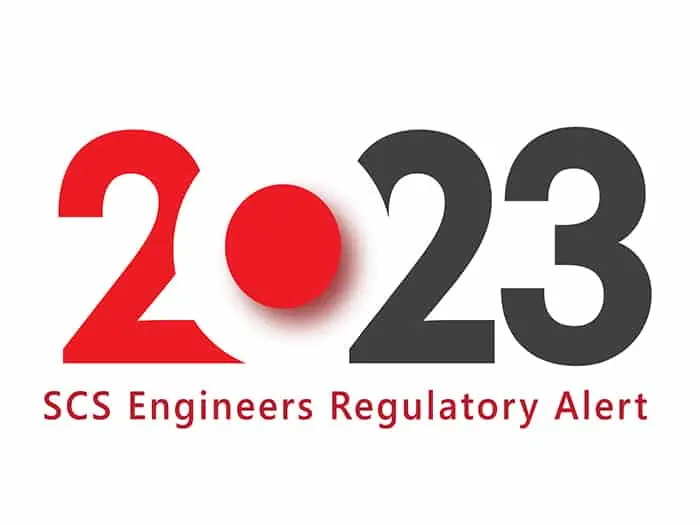


Yesterday, October 24, 2023, the United States Small Business Administration (US SBA) released an updated version of its newest Standard Operating Procedures (SOP) under Lender and Development Company Loan Programs. The new SOP, Version 50 10 7.1, will go into effect on November 15, 2023. All lenders, certified development companies (CDCs), SBA employees, and applicants/borrowers of 504 and 7(a) loans will be subject to the changes therein at that time.
The environmental policies of the SOP are contained within Chapter 5, Section E of the new SOP. The primary highlighted change from the previous version (50 10 7) is that in subsection d, paragraph vii, the word “groundwater” has been removed regarding contamination originating from another site. In other words, SBA henceforth will require a discussion of mitigating factors related to known contamination resulting from neighboring properties regardless of media type. That section now reads as follows:
SCS Engineers continues to monitor this and other SOPs/guidelines that dictate proper performance of due diligence for specific lending programs. Please contact Rachel McShane for more information.
SOP, Version 50 10 7 for the Small Business Administration’s Standard Operating Procedures for Lender and Development Company Loan Programs effective on August 1, 2023.
On May 10, 2023, the United States Small Business Administration (US SBA) issued a long-anticipated informational notice regarding implementing their newest Standard Operating Procedures (SOP) under Lender and Development Company Loan Programs. According to this notice, the new SOP, Version 50 10 7, goes into effect on August 1, 2023. All lenders, certified development companies (CDCs), SBA employees, and applicants/borrowers of 504 and 7(a) loans will be subject to the changes therein at that time.
Today’s SCS blog provides critical guidance to entities needing environmental due diligence or other services under the auspices of US SBA programs.
The environmental policies of the SOP are contained within Chapter 5, Section E of the new SOP. One highlighted change from the previous version (10 5 6) is that these policies apply “only to real estate acquired, refinanced, or improved by the loan proceeds” and do not apply to collateral. For the commercial real estate subject to the program, the following summarizes the basic requirements:
The SBA SOP also has specific requirements for “Special Use Facilities,” which differ from other property types. The three categories of Special Use Facilities include child-occupied, dry cleaners, and gas stations. Of the three, the new version of the SOP contains a point of clarification pursuant to child-occupied facilities. It now explicitly specifies that all such facilities constructed before 1978 must undergo a Lead Risk Assessment (RA) and test all taps, water fountains, and spigots for lead in drinking water. The RA should be conducted within one calendar year of submission to SBA for approval and follow US Department of Housing and Urban Development (HUD) Guidelines.
As always, SCS aims to make the process of securing both conventional and SBA loans as painless as possible. Rest assured that we fully understand the program’s intricacies and are well-positioned to assist you with environmental requirements related to this program.

Additional Resources:
Brownfield Properties: The Ins and Outs of Due Diligence and Investment
Author Megan Hente discusses the importance of environmental due diligence for purchasing brownfield properties. Brownfields offer opportunities to redevelop…
Will EPA’s Proposed Designation of PFOA and PFOS Impact Real Estate?
Jeffrey D. Marshall, PE, and Michael J. Miller, CHMM, discuss environmental due diligence and how the proposed CERCLA rule could impact the number of recognized environmental conditions…
Environmental Due Diligence and All Appropriate Inquiries
Today’s commercial real estate transactions must consider environmental issues. Complex laws can impose significant environmental liabilities on…